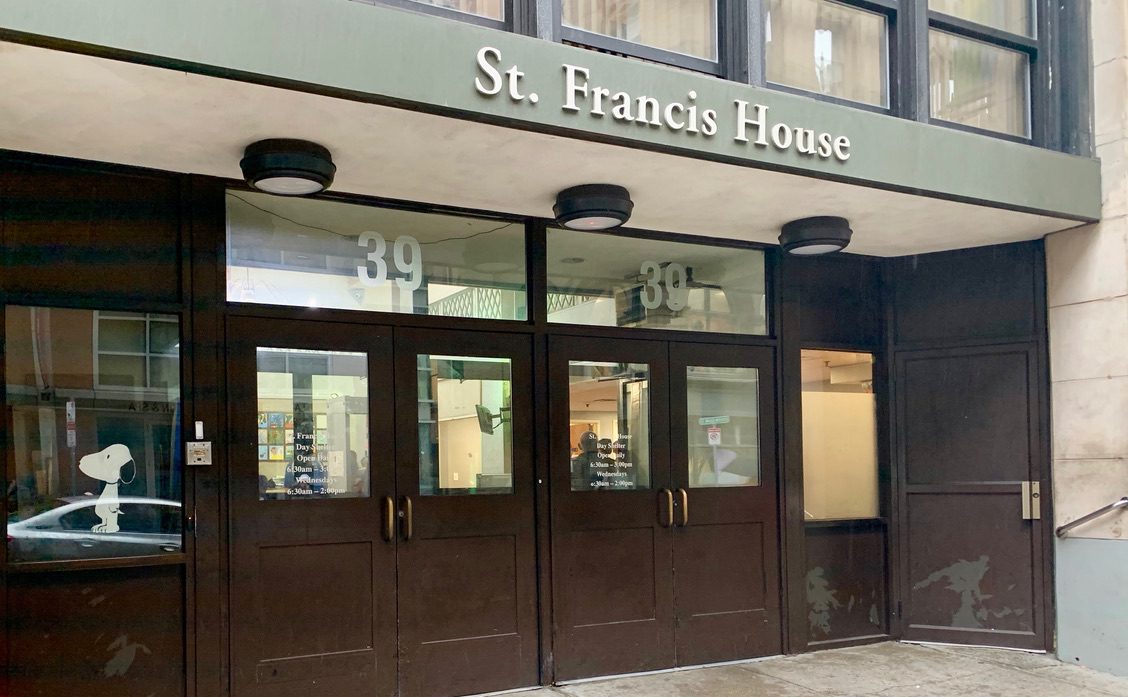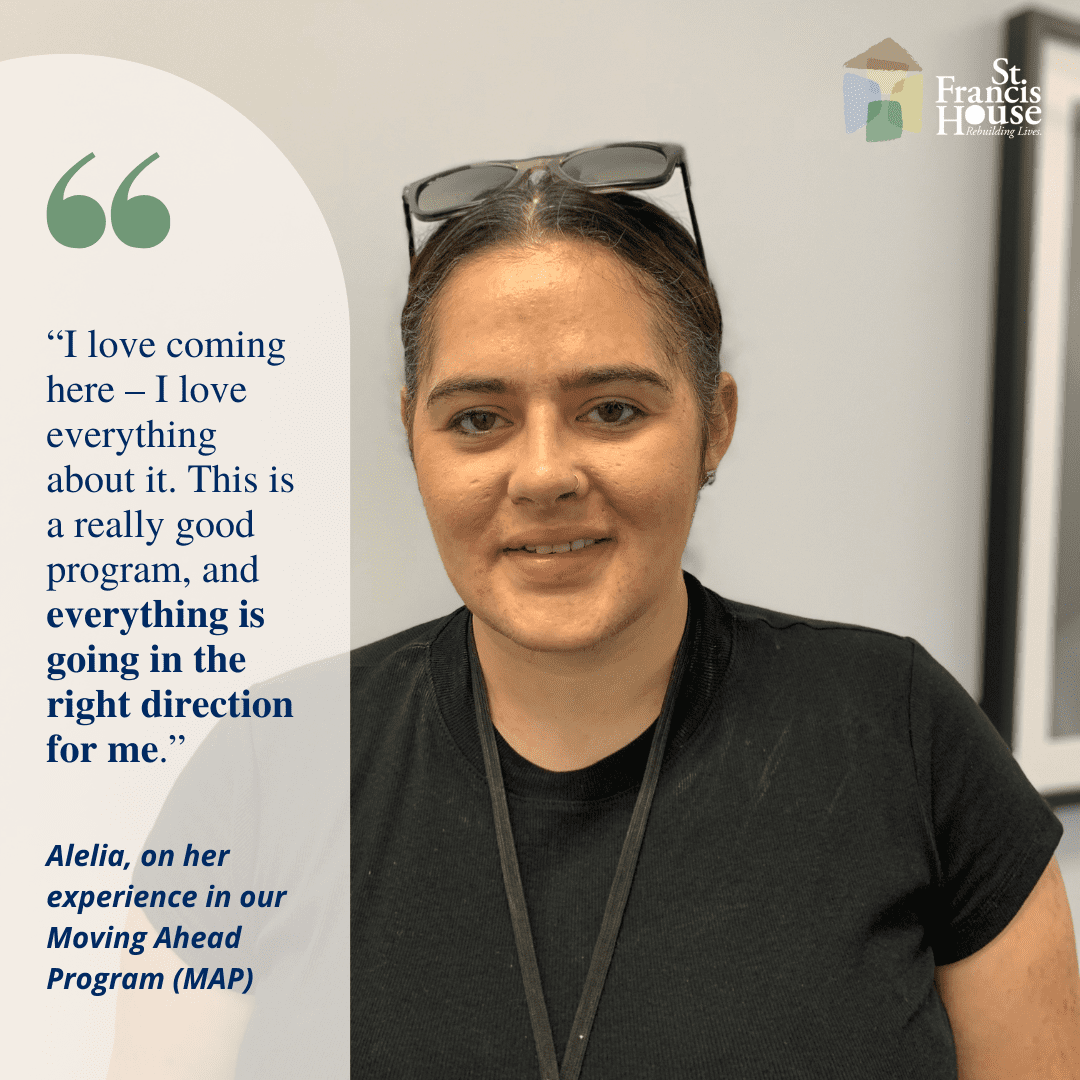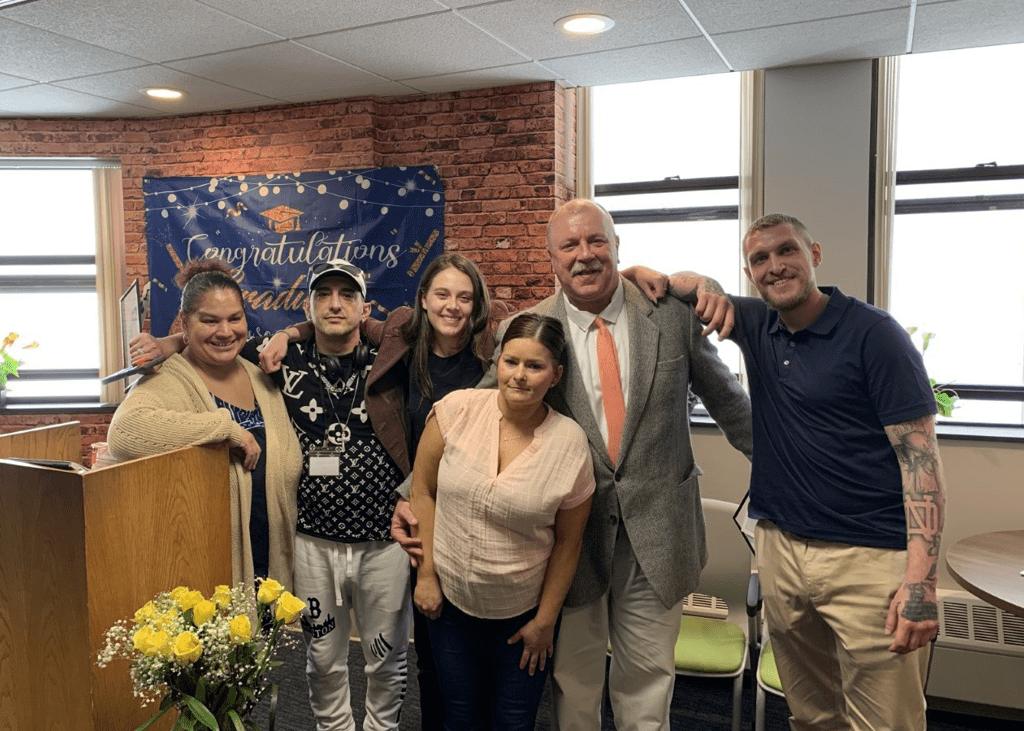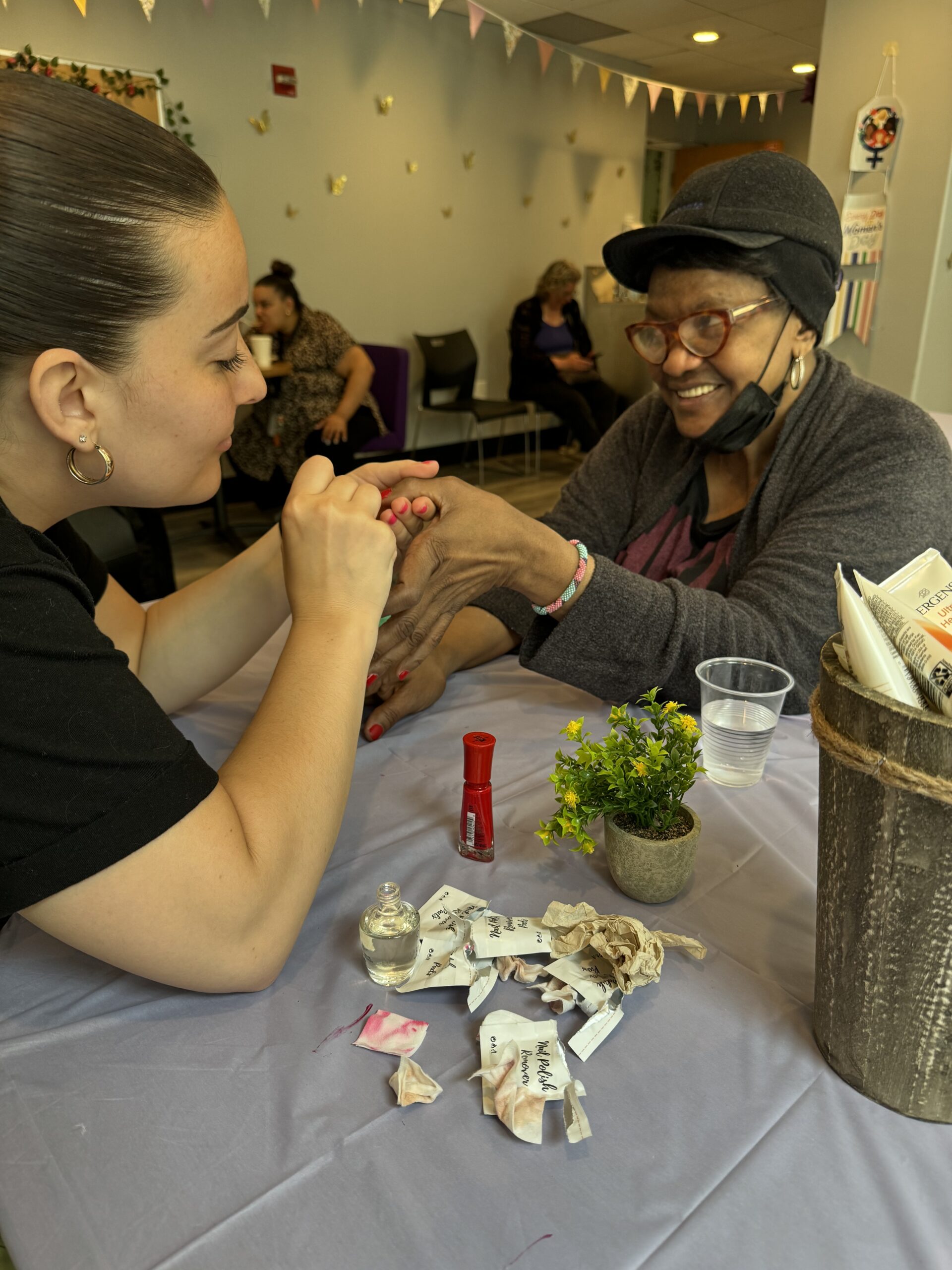 A crucial part of our mission here at St. Francis House is helping our guests find work. But for many of our guests, working – whether full or part-time – is just not possible. They may have chronic health conditions or disabilities that make working too difficult. They may be at a point in their lives where they need to focus on finding stability before they can make the transition to joining the workforce.
A crucial part of our mission here at St. Francis House is helping our guests find work. But for many of our guests, working – whether full or part-time – is just not possible. They may have chronic health conditions or disabilities that make working too difficult. They may be at a point in their lives where they need to focus on finding stability before they can make the transition to joining the workforce.
To help these guests, the Workforce Development team has two counselors, Lisa Vogel and Jae Spalding, dedicated to optimizing our guests’ sources of income. Lisa has been working on income maximization since she joined St. Francis House five years ago.
“Most of our guests do have some form of income,” Lisa says. “They receive basic Social Security Income (SSI) or Social Security Disability Income (SSDI), or veterans’ benefits. SSI maxes out at about $800, SSDI at $1,400. If you check the rental listings, you’ll see pretty quickly that this isn’t enough to live on. Our goal is to help our guests increase their income – using means other than employment, which is not always possible – so that they can stabilize their lives and rebuild them in a way that’s sustainable.”
Recently, Jae, who’s been at SFH for nearly two years now, joined the income maximization team after having been involved with the Moving Ahead Program.
“Chronic health conditions and disabilities make it difficult for many of our guests to work full time or even part-time. So we look for other ways to increase the money available for them,” says Jae. “We explore everyone’s situation in depth to help them figure out what’s feasible. We often find that there are other programs they’re eligible for. One good example is people collecting basic SSI who are actually eligible for higher-paying SSDI benefits. If they’re eligible, we assist them in applying.” For those able to work, Jae and Lisa also help guests tap into training programs that the government supports, such as Social Security’s Plan to Achieve Self Support and Ticket to Work initiatives.
The team also makes sure that guests can take full advantage of state cash benefits from the Massachusetts Department of Transitional Assistance; of Veterans or unemployment benefits; transportation assistance such as discounted T-passes and trips on The Ride for the elderly and disabled; and of SNAP benefits to help pay for food. And they help guests make the most out of the benefits they do get.
For those with complex immigration issues, the situation is even more difficult. Even a lawful resident must be in the U.S. for five years before qualifying for SSI. Eligibility for SNAP benefits requires legal residency as well. “It’s a hustle,” Jae says, “But for people who are ineligible, we make a plan with the individual so they can find food, guiding them to places that serve breakfast, lunch, or dinner throughout the week, and to food pantries where they can get a bag of groceries.”
For guests that can work, Lisa and Jae help with the juggling act of working while still receiving critical benefits. With SSI subtracting a benefit dollar for every two dollars earned, even working a part-time minimum wage job can quickly eat into benefits. Soon enough, the effective wage someone is earning has decreased sharply. And they still haven’t closed the gap between what they’re earning and what they need to live on. Sometimes Lisa and Jae are able to identify work-related expenses – e.g., a pair of necessary work boots, or a uniform and apron for a waitperson – and find assistance.
Lisa and Jae also help guests with difficult and often overwhelming situations that can hold a guest back from achieving financial stability. One guest had significant IRS debt – so significant, that if he worked legally, his entire paycheck would be garnished. As a result, he worked construction “under the table”, making him ineligible for workman’s compensation, unemployment insurance, and health benefits. Lisa helped negotiate matters with the IRS. As a result, the amount due was whittled down to a manageable level that enabled the guest to return to the workforce with an “on the books” job. This had a compounding impact on his life: he found stable housing, maintained sobriety, and reunited with his son.
Homelessness is often associated with hopelessness. By helping this guest resolve what he thought was a hopeless situation, St. Francis House was able to help a guest fully rebuild his life.
“Jae and I are lucky,” Lisa says. “We have a really interesting and rewarding job. With all the different programs out there, we get to be creative. And we get to work with people who are each in a unique circumstance, and who have proven themselves to be resourceful and creative in the ways they’ve been coping over the years with some incredibly difficult situations.”
Jae echoes Lisa’s words here. “Our work is like a puzzle that we’re solving together with our guests in a way that creates sustainable improvements in their lives. It’s challenging, but it’s rewarding knowing the result is usually the long-awaited key out of homelessness for the individual.”
Whether it’s helping a guest find a bit more income, or find a place to eat – which, by the way, is sometimes St. Francis House – or find their way out of a disastrous situation and onto the path to rebuilding their lives, our workforce and income maximization team is there for our guests every step of the way.



